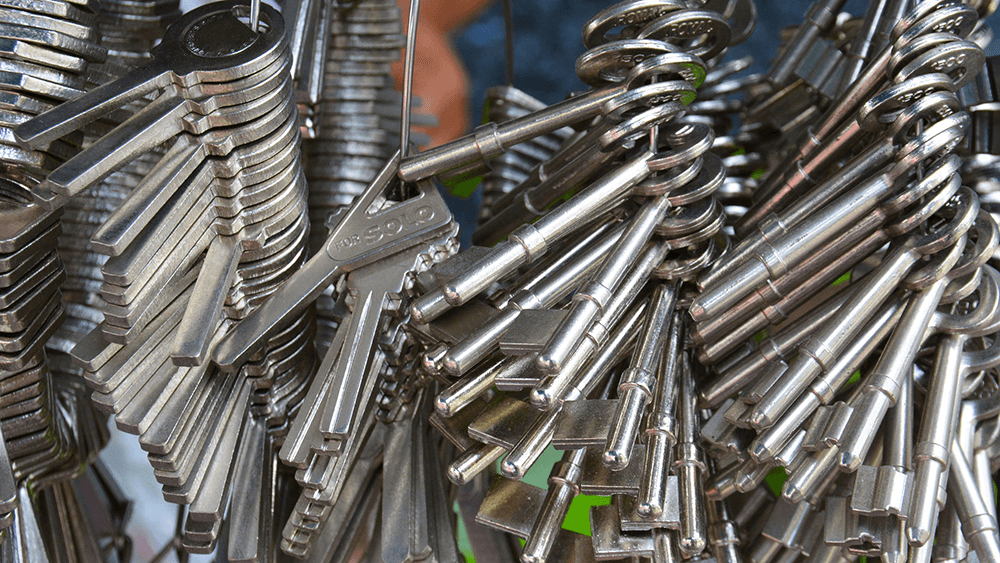
Jan 2, 2019 | News Roundup
A selection of health news from the University of Chicago and around the globe curated just for you.
UChicago researchers broaden impact by bringing scientific discoveries to market
Taking biomedical discoveries from bench to startup to bedside. Cover story for the Fall 2018 issue of Medicine on the Midway alumni magazine. (The Forefront)
Neuroscientist receives $2.32 million grant to study the role of the microbiome in Alzheimer’s disease
UChicago’s Sangram Sisodia has received a grant for $2,322,876 over three years from philanthropic foundation Good Ventures to support research on Alzheimer’s disease. (The Forefront)
To battle cancer, first understand the immune system
For years, cancer treatment has largely involved one of three options—surgery, radiation, or chemotherapy. In recent years, immunotherapy has entered the playing field. Tom Gajewski featured. (Science Friday)
Immigrating to the US? Get ready for a new microbiome
Moving to the U.S. can seriously mess with immigrants’ microbiomes, according to a new study that tracked the digestive health of refugees coming to Minnesota from Southeast Asia. (NPR)
How to make software algorithms for health care fair and equal for everyone
Machine-learning algorithms help organizations analyze large amounts of data to improve decision-making. But, what happens when the data being analyzed reflects historical bias against vulnerable populations? UChicago’s Marshall Chin is working to ensure equity across all areas of the healthcare system, including data analysis. (The Forefront)

Nov 30, 2018 | Food Allergies, Microbiome, News Roundup
A selection of health news from the University of Chicago and around the globe curated just for you.
Researchers find promise in new treatment for food allergies
UChicago is part of clinical trial that doctors hope will lead to an FDA-approved medication for people with peanut allergy. Christina Ciaccio featured. (UChicago News)
Save the germs
With modern medicine killing off whole categories of bacteria and viruses—including benign ones that promote health—Jack Gilbert and colleagues propose a way to preserve microbes that may rescue us one day. (The New York Times)
How might the appendix play a key role in Parkinson’s disease?
Those who have their appendixes removed in young adulthood run a nearly 20 percent lower risk of developing the neurodegenerative disorder decades later or not at all, study finds. (Scientific American)
Polsky Center’s Innovation Fund renamed to honor George P. Shultz
The decision to rename the Innovation Fund was the result of a $10 million gift to the Fund from University trustee and Booth alumna Mary A. Tolan, MBA ’92. (Polsky Center)
Jeffrey Hubbell named to National Academy of Medicine
Research by Hubbell—who co-founded UChicago food allergy startup ClostraBio—has led to tools and treatments, including nanoparticle vaccines and drug delivery systems, that combat diseases ranging from influenza and type 1 diabetes to tuberculosis and cancer. (UChicago News)

Nov 21, 2018 | Immunology, Microbiome, Research
by Elise Wachspress
If you think the invention of the microscope was a pivotal moment in the development of biological knowledge, you might be pretty impressed with the flow cytometer.
This technology allows scientists to “see” an entire stream of individual cells, detecting the features of each as they rush single file through a tiny tube. A laser (or sometimes several) shines through or bounces off the cells as they pass by. Depending on the specific kinds of fluorescent indicators applied, flow cytometry can efficiently characterize 30 or more factors in hundreds of thousands of individual cells and even sort them as they surge through the tube.
For scientists studying the microbiome, the immune system, and their intersection, flow cytometry—we celebrate its 50th anniversary this year—was a breakthrough. The tool provides an efficient way to both distinguish the various bacteria in a sample and identify human immune cells and the particular antibodies they carry.
Last fall, a team led by Jeffrey Bunker (a student in the University of Chicago’s revered Medical Scientist Training Program) and his mentor, Albert Bendelac, MD, PhD (A.N. Pritzker Professor of Pathology) used flow cytometry to understand an important interaction between the gut and the bacteria that live there.
The gut is the source of large quantities of immunoglobulin A (IgA), the most abundant antibody protein in mammals. In our intestines, where we depend on a diverse community of bacteria to digest our food and make important by-products like vitamins, IgA sticks to the surfaces of the microbes, allowing them do their work while keeping them from settling in on the mucous membranes that line the gut. These membranes are the critical barrier that separates the energy furnace in our intestines from the rest of our bodies.
But how do IgA proteins—which defang bacteria with a kind of key-in-lock technique—recognize the many different kinds of bacterial locks and latch so specifically on to each? Thanks to flow cytometry, the team could identify the many types of bacteria involved, so they knew the complicated job IgA was up against.
What they found was that IgA cells in the gut were “polyreactive”: they could clasp very specifically onto many different types of bacteria. This Swiss-army-knife ability was not the result of intervention by other parts of the immune system or hyperactive mutations within the IgA cells themselves. Even changes in diet (and the presumed alterations in the balance of bacteria induced by these changes) did not significantly affect their ability as quick-change artists.
This research demonstrated that IgAs, part of our adaptive immune system, actually have the innate—born in—ability to recognize individual types of bacteria, even new ones, and do what they need to do to create the right latch. The takeaway is that the bacteria in our guts and our own immune systems have clearly been evolving together, probably for millennia, and that the immune systems of new humans have innate ability to recognize “old” bacteria—those that have been fellow travelers with the human race for generations.
This is just one more bit of evidence that none of us are truly individuals. Each human being is a colony of species living together in community—communities with very long histories and intense cultures—and we’re wise to go with the flow.
This past summer, Bunker and Bendelac went on to publish a major review article on IgA biology for the journal Immunity. There they presented a new framework integrating two distinct types of immunity that protect the gastrointestinal mucus membranes: the polyreactive IgA described above and much more “bespoke” key-and-lock responses to pathogens and vaccines provided by other kinds of immune cells.
Elise Wachspress is a senior communications strategist for the University of Chicago Medicine & Biological Sciences Development office

Oct 31, 2018 | Immunology, Microbiome, News Roundup, Research
A selection of health news from the University of Chicago and around the globe curated just for you.
Three UChicago Scientists Earn NIH Grants to Pursue Innovative Research
Three UChicago scientists—including Jun Huang, who studies the immune system and its role in treating infectious diseases and cancer—each have been awarded $1.5 million grants over five years from the National Institutes of Health in support of their innovative, high-impact biomedical research. (UChicago News)
Noah’s Ark for Microbes
A team of researchers, including Jack Gilbert, is calling for the creation of a global microbiota vault to protect the long-term health of humanity. (Science)
These 19 MassChallenge Startups Just Won $1.65M
Nineteen early-stage startups, including Oxalo Therapeutics, won a total of $1.65 million at Wednesday night’s MassChallenge awards ceremony. (BostInno)
Polsky Opens its High-Profile Accelerator to Alumni Startups
UChicago’s New Venture Challenge, ranked among the top accelerator programs in the country, is launching an alumni track as part of its annual startup competition. (American Inno)
Meet the Carousing, Harmonica-Playing Texan Who Just Won a Nobel for his Cancer Breakthrough
This year, the Nobel Prize was awarded to James Allison, PhD—a colleague, friend, and “The Checkpoints” bandmate of Tom Gajewski—for research that laid the groundwork for the development of checkpoint inhibitor immunotherapies. (WIRED)

Sep 28, 2018 | Commercialization, Food Allergies, Microbiome, News Roundup, Research
A selection of health news from the University of Chicago and around the globe curated just for you.
The end of an epidemic
The number of people with food allergies has exploded in recent years. A dream team of researchers from UChicago may have figured out why, and now they’re developing therapies that could end the epidemic. Cathy Nagler featured. (Chicago magazine)
UChicago startup gets $2.3 million for kidney stone prevention
Biotechnology startup Oxalo Therapeutics is closer to developing a first-of-its-kind drug to prevent kidney stones thanks to $2.3 million from the National Institutes of Health. Hatim Hassan and Yang Zheng featured. (Crain’s Chicago Business)
Science by the sea
In three weeks, there are just over 500 hours. The students in the Marine Biological Laboratory’s September intensive courses tried to use them all. Jack Gilbert featured. (UChicago Magazine)
Nasal bacteria linked to cold severity
In a study, people with certain bacteria in their noses were more likely to develop more severe cold symptoms. (U.S. News & World Report)
Brain-gut link may be way faster than we thought
New research with mice may upend our understanding of the connection between the gut and the brain, as well as appetite. (Futurity)








